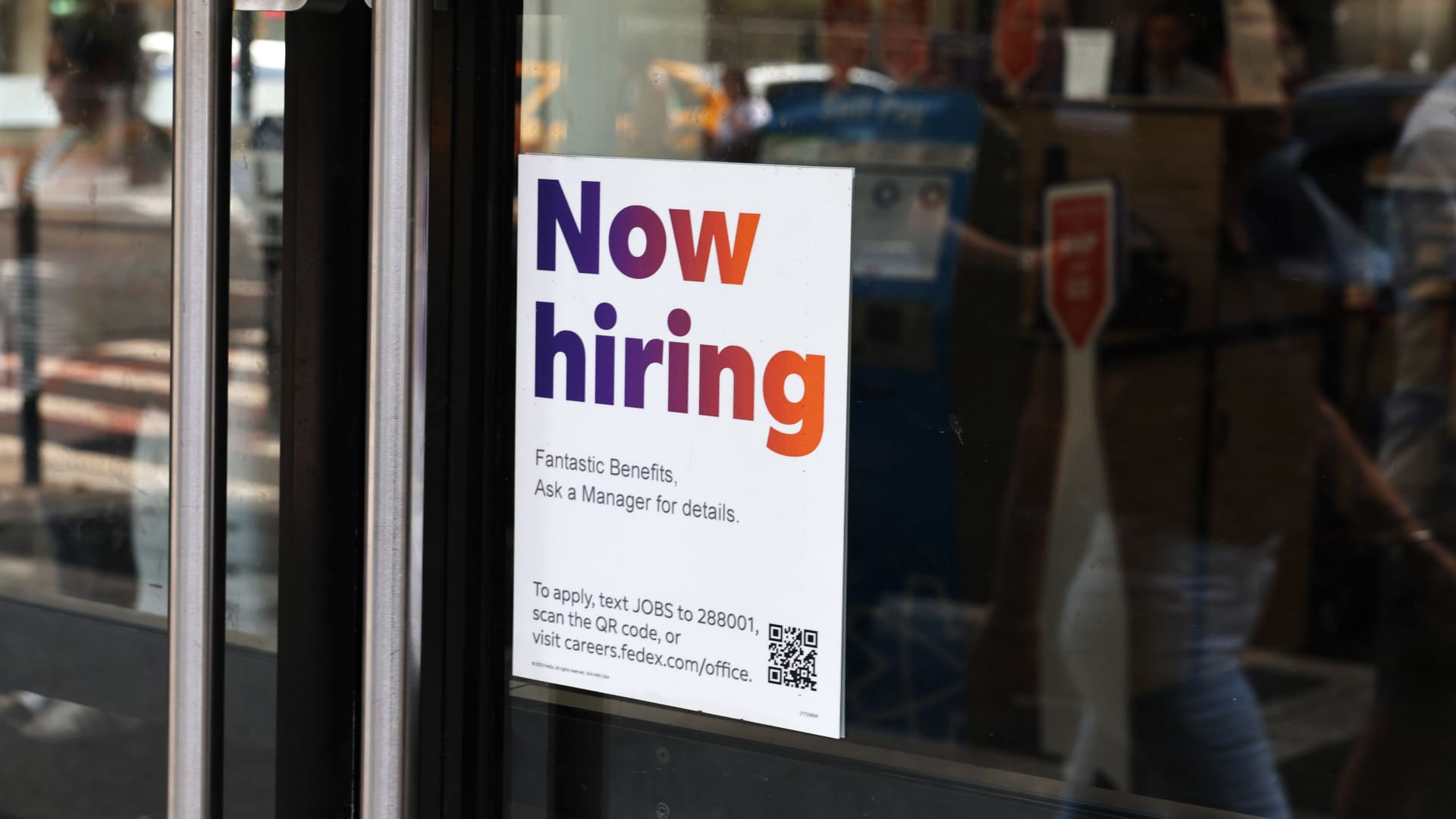The U.S. economy created 818,000 fewer jobs than originally reported in the 12-month period through March 2024, the Labor Department reported Wednesday.
As part of its preliminary annual benchmark revisions to the nonfarm payroll numbers, the Bureau of Labor Statistics said the actual job growth was nearly 30% less than the initially reported 2.9 million from April 2023 through March of the following year.
The revision to the total payrolls level of -0.5% is the largest since 2009. The numbers are routinely revised each month, but the BLS does a broader revision each year when it gets the results of the Quarterly Census of Employment and Wages.
Wall Street had been waiting for the revisions numbers, with many economists expecting a sizeable reduction in the originally reported numbers. Even with the revisions, job creation during the period stood at more than 2 million, but the report could be seen as indication that the labor market is not as strong as the previous BLS reporting had made it out to be.
At the sector level, the biggest downward revision came in professional and business services, where job growth was 358,000 less. Other areas revised lower included leisure and hospitality (-150,000), manufacturing (-115,000) and trade, transportation and utilities (-104,000).
Within the trade category, retail trade numbers were cut by 129,000.
A few sectors saw upward revisions, including private education and health services (87,000), transportation and warehousing (56,400) and other services (21,000).
Government jobs were little changed after the revisions, picking up just 1,000.
Nonfarm payroll jobs totaled 158.7 million through July, an increase of 1.6% from the same month in 2023. There have been concerns, though, that the labor market is starting to weaken, with the rise in unemployment of 4.3% representing a 0.8 percentage point gain from the 12-month low and triggering a historically accurate measure known as the Sahm Rule that indicates an economy in recession.
However, much of the gain in the unemployment rate has been attributed to an increase in people returning to the workforce rather than a pronounced surge in layoffs.
Federal Reserve officials nonetheless are watching the jobs situation closely and are expected to approve their first interest rate cut in four years when they next meet in September. Chair Jerome Powell will deliver a much-anticipated policy speech Friday at the Fed’s annual retreat in Jackson Hole, Wyoming that could lay the groundwork for easier monetary policy ahead.

 Accounting1 week ago
Accounting1 week ago
 Accounting1 week ago
Accounting1 week ago
 Finance1 week ago
Finance1 week ago
 Personal Finance1 week ago
Personal Finance1 week ago
 Personal Finance1 week ago
Personal Finance1 week ago
 Blog Post1 week ago
Blog Post1 week ago
 Accounting1 week ago
Accounting1 week ago
 Economics1 week ago
Economics1 week ago






















